I never used to be a morning person
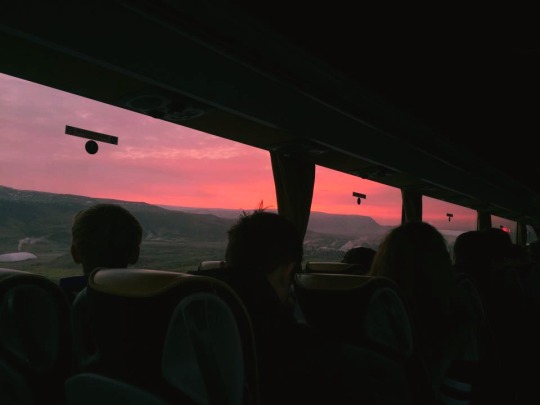
I've always been a "good sleeper". I usually don't have trouble falling, or staying, asleep as long as I'm in my own bed and am not in the throes of some anxiety attack or panic-inducing situation.
I also have really vivid and interesting dreams, which helps.
The last few years though, I've been getting more into early starts.
Part of it is that I don't party as much as I used to. When you're awake for days doing bad things to yr body, yr body needs to crash and reset and it does so through sleep.
I also like being awake more. In my pre-therapy days, lots of days felt like I was just trying to muddle through until I could crawl back into the safety of my bed and my dreams.
Sleep was more like an escape.
But in the last few years that has changed a lot. I still love sleeping, but if I could go without sleep for several days just so I could be productive and also do all the things I want to do, then I would.
I still want to stay up for days on end, but for different reasons.
I haven't been able to stay up for days per-se, but lately our jet lag has me waking up at 2 - 3AM most mornings, and passing out before 8PM. It's been weird, and is kinda like getting the flu at the end of your day because yr body is super confused internally.
Yesterday and today I woke up at 5:30AM and it was great.
Turns out I can get a lot done super duper early in the morning, and since I'm one of those people who are very very on and clear-headed and productive right after waking up these early-morning hours have been great.
I'm not going to miss falling asleep sitting up at 8PM, but y'know
tradeoffs.
I miss Thailand
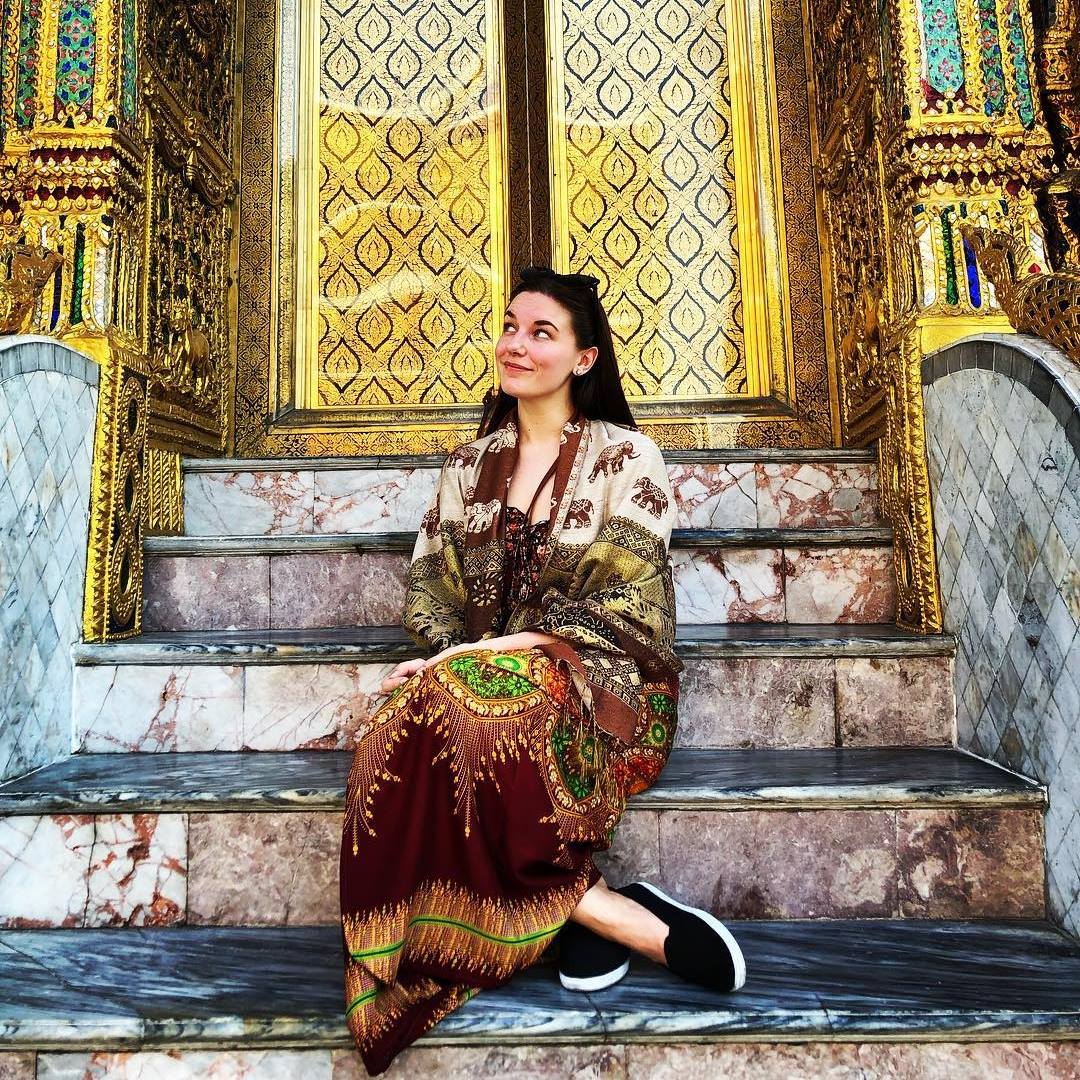
We're home and I'm so jet-lagged that I feel sick. My sleeping pattern is all out of whack and I've been awake since 3:30AM this morning and am going to try and stay awake all day to reset my circadian rhythm.
But Thailand was worth every lost hour and every weird grumble in my insides.
We were there for nearly a month, and stayed in Bangkok, Chiang Mai, Koh Tao, Phuket, and Bangkok again before flying home.
Bangkok was insane. It's big, bigger than I realized or can describe. The city, which houses 8.5 million people, stretches for miles and miles.
There was a smog warning when we were there and you could taste it in the air. Lots of people wore masks.
We saw Buddhist monks everywhere in their bright orange robes with their shaved heads. We saw a group of teenage monks filing into a 7-11 to buy popsicles to beat the heat which made me laugh.
The heat. My god.
+35C most days, humid, sticky and perfect.
The best weather, food, and vibe were found in the northern city of Chiang Mai.
We found the Cowboy Hat Lady, made famous in that episode of Parts Unknown and it probably comes as no surprise that the food completely lived up to the hype.
Almost everything we ate was made at a stall, cart, or cobbled-together shack on the side of the road (except some yakiniku and shabu-shabu that we ate while in Phuket).
I will deeply miss the food there.
Thai food (and Asian food in general) is so much more interesting and complex than North American food, I think. It's layered and spicy and every bite is different.
I discovered Prik Nam Pla, which is a condiment sauce made by pickling chilies in vinegar and fish sauce, sometimes with sugar to cut the tang.
It can be kinda dull or spicy af, depending on where you are; everyone makes it, and everyone makes it a little differently.
Everyone in Thailand has "their recipe" for everything, which means there's a huge variety in how the same dish can turn out, and it's always good. I didn't eat a bad meal the entire time we were there.
The thing I will miss most about Thailand isn't the food, though. It's the people.
Everyone we met was so gracious, kind, and helpful. They seemed to appreciate that we tried to learn the language, which I'm sure we still butchered because Thai is a tonal language and is much more subtle than you realize while listening to it as a non-native speaker.
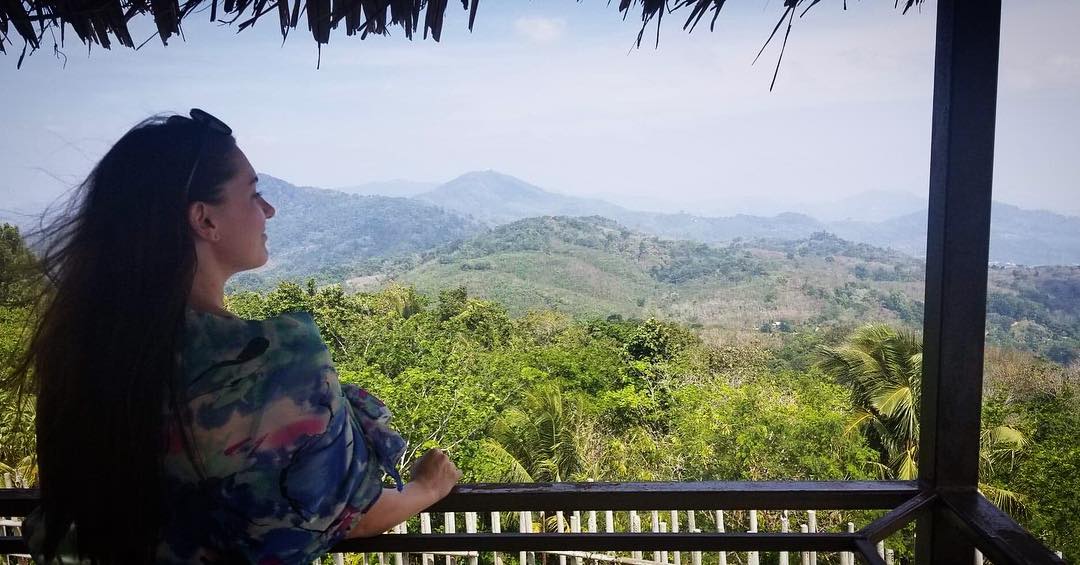
I'm going to miss saying (and lightly butchering) "sawasdee ka!" when greeting people, and giving a wai (a slight bow with hands pressed together) and saying "khob khun kha!" as thanks.
I'm going to miss being immersed in the Buddhist culture. All the little spirit houses, monks, wats, and flowers everywhere.
I felt peaceful in the wats we visited. I liked taking my shoes off and covering my shoulders and my knees out of respect for their places of worship. It was such a simple, nice form of reverence.
I've never been a religious person, but Buddhism is something I can think I could get behind.
We met the most amazing people, as usual. John and I have good luck that way.
Every time we go on vacation we wind up having nights that make us wake up the next day and say "can you believe we did that?!"
It's also way easier to power through a hangover when you know a spicy bowl of Tom Yum at the stall around the corner.
(Did I mention I'm going to miss the food?)
Obviously though, the best part about the trip was spending it with John.
I really lucked out in finding a guy I travel well with. He's so patient and outgoing and records every day of our trip in a book every time we go on vacation, which is the cutest thing.
He even glued Thai coins and kept all the transfer stickers they gave us to get on different planes and boats in the book too, omg.
At the end of our trip we got matching tattoos. Which sounds lame and dumb but hear me out:
We're getting married next year and neither of us want to wear wedding bands day-to-day, so we decided to get matching tattoos of the constellation "Ursa Majora", which is a nod to a deep and weird inside joke and our love of science and space.
They're both in the same spot, below our hearts. Pointing us home.
I know it's cheesy but whatever. I love them.
I wish I could describe everything we saw and did in that amazing country.
How green and lush and humid it is. How every back lane looked. How the sky looks from the beach on Koh Tao at night. What it feels like to be lulled to sleep on the Night Train to Chiang Mai.
But there aren't enough words to explain it all. All I can do is hold onto the memories of the things I experienced as tightly as I can, and plan to make more of them as soon as I can.
I'll miss Thailand.
But I'm really gonna miss their food, though.
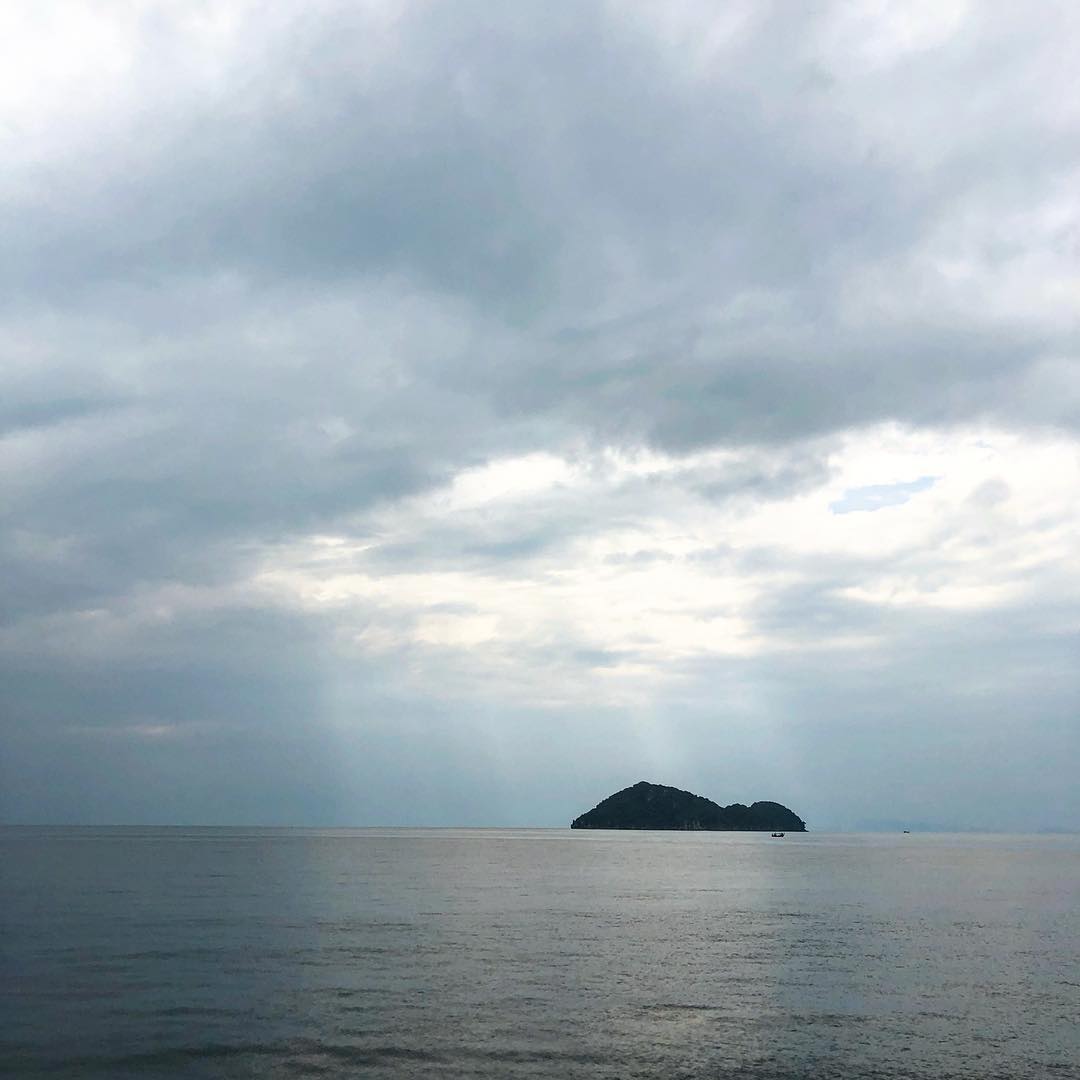
It's cold outside
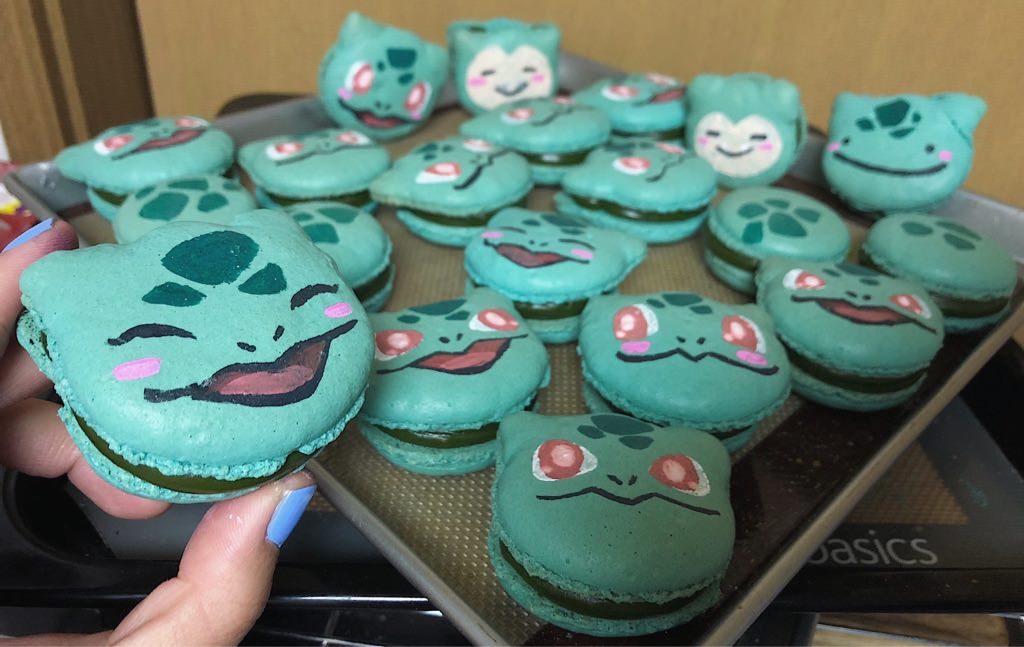
but I'm indoors and cozy underneath a warm blanket with my cats nearby
and a glass of wine
and a couple of dried figs
and a big 'ol mason jar of water
(gotta stay hydrated for our flight)
listening to ASMR videos and reading Hacker News articles.
Even though I'm pumped to leave on an adventure tomorrow
it's nice to be home curled up with our cats in the living room
hearing John laugh every once in a while from the kitchen
(he's on the phone with his mom; they are talking about dog breeds)
maybe with a slight buzz, lulling myself to sleep for our 3AM wake-up time.
(Send thoughts and prayers, folks.)
Tomorrow we have a 24-hour travel day to get to the other side of the world
but for now I'm happy to be safe and warm here in my winter city
feeling excited for what's to come.
Fallen heroes
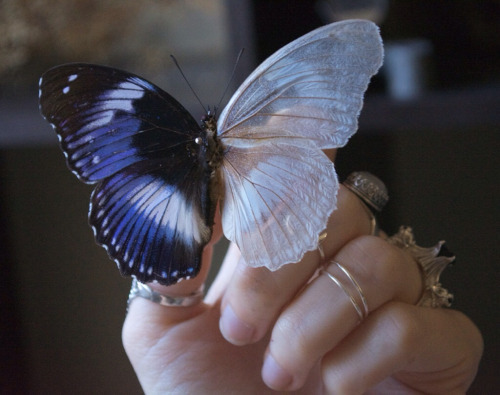
There comes a time in every person's life when they experience a fundamental shift in how they view their parents. A moment when the veneer is peeled away, revealing the flawed, real people our parents are underneath all the assumptions we make about them as their child.
In the most recent episode of Hidden Brain (a great NPR podcast I can't recommend enough) the host was interviewing a woman whose view of her father changed when she was twelve years old.
Someone had called the house looking for her dad, and she answered the phone to say he wasn't around. She remembers that the caller sounded old; his voice shaky. He was upset. He said:
"Your father stole my life savings! Your father is a crook!"
Those few words fundamentally changed her relationship with her dad. She no longer saw him as a charismatic, charming artist. She saw him for who he really was: a liar, a con man, and - it seemed - a thief.
My moment of reckoning with my own father didn't happen until I was in my mid-twenties. I was going back through some old emails, looking for something I'd intended to reference at my next therapy session, I think, and I came across an email exchange from July of 2010.
My dad was upset that I was quitting my government job to attend university. Over the course of several he emails made it clear that he was angry at my decision, and took issue with my reply, where I told him (in so many words) "I'm an adult and you need to respect my decisions and not speak to me so disrespectfully."
Seeing his response, which follows, shook me to my core:
Wow, in nut shell, write me off. You never contact me unless you want something from me. You've forgotten my birthdays, never see me on father's day, etc.* You obviously are very self absorbed and unless I serve some purpose you have nothing to do with me. When was the last time you called to see how I was doing. Can't remember can you. How is my back, don't know do you. Don't care do you, typical.**
I include the text above because, until that moment, I hadn't been presented with an example of how my dad handled conflicts in our relationship. Sure, I had memories of angry emails, and of him hanging up on me when he got worked up, but I'd never been faced with real evidence of how my father treated me and spoke to me since we'd become estranged a few years earlier.
Until I rediscovered that email I'd been under the impression that I was in therapy largely due to my relationship with my mom. That it was her abuse, gaslighting, and manipulation of everyone around her that was the primary contributing factor to why I had severe anxiety and extremely low self-worth.
Like the woman in the Hidden Brain episode, seeing those words changed how I viewed my father.
Until then I'd always viewed him as a tragic hero. A guy who got married too young, was tricked into having too many kids too young, and was trying to do the best he could in a marriage where his spouse would routinely brag to her kids that "your dad can never leave me because I'll take everything."
The idea of my dad as a tragic hero was the prevailing impression I'd gotten from talking to our family, and the impression I developed as I became the target of my mom's anger as a teenager and my dad tried, again and again, to stand up to how she treated me.
Until I read that email I'd assumed that my dad was, at worst, a cowardly hero.
Someone who tried and failed to do the right thing. A man who got stuck in a bad situation and was trying to make the best of it because he didn't have the willpower to man up and leave.
I remembered my dad as someone funny and kind. With a temper, sure, but as someone who was more likely to start crying during an argument than to hurl insults and lash out angrily.
Despite everything that had happened, the teenage years spent largely in the counsellor's office because I was to distressed with my home life to go to class; his inability to convince my mom to let me move home so I could attend university and not sink into debt; and even the estrangement because he refused to have a relationship with me where my mom wasn't physically present... I still saw my dad as a hero.
Maybe a tragic, or cowardly one, but a hero nonetheless. Because he did the best he could to be supportive and to help me become a happy, well-adjusted person.
At least, that's what I'd told myself and fully believed until I discovered this series of emails.
The last time I communicated with my father was earlier this year. My mom had decided to run for school trustee in the recent civic election and my dad was struggling with the basics of setting up a website, social media profiles, etc. - so he reached out to me.
"Not as my dad, but as a potential client."
I don't want to go deep into my feelings on this issue, but suffice it to say that my mom is about as unqualified to hold public office as they come, and I had no interest in helping her.
So I wrote him back.
I wrote long email explaining how I felt, reiterated the situation that had caused us to become estranged in the first place, and laid out the things that needed to happen for me to feel comfortable re-engaging in a relationship again.
I ran it past John and a few people whose opinions I respect, who told me I sounded reasonable. Firm, but reasonable.
My dad, for what it's worth, never wrote back.
What I've learned in the years since I found those emails is the ugly truth that every child eventually discovers about their parents: that they aren't perfect, and they're just as capable of being petty and mean and immature as anyone else.
I obsessed over the 2010 emails for a while. I read them and re-read them, almost unable to comprehend that the person I had believed in and loved unconditionally could also be the same person accusing me of not caring about them and being self-centered because I pushed back and asked for respect and boundaries.
I brought the emails to therapy and I cried like I was in mourning.
Which I suppose I was, in a way. I was mourning the loss of the idea of my father. The loss of the idea that he was the person who always believed in me and stood up for me, and who respected me and wanted me to be happy.
As kids, we idolize our parents. We look up to them. We believe them to be infallible, and when the ugly truth of who our parents really are comes crashing down on us it's our responsibility to grapple with those feelings.
It becomes our job, as their children and as adults, to make sense of the contradiction between who we believed they were, and the person our parents really are.
Like the woman in the Hidden Brain episode I had to come to terms with the fact that my dad, like most people and most parents, was not who I believed him to be.
In the episode, the daughter eventually reunites with her father, though their relationship is strained. They only talk by phone, and after her dad suffers a fall and winds up in an assisted living facility, she visits him only once before he dies.
During their last meeting he tells her "I'm sorry for all the things I've done" and the daughter is left wishing she'd asked her dad: "what things? What were you sorry for?" before he died.
When she recalls this to the host, she sounds distressed. Like there's something nagging at her; something unresolved lurking beneath the surface. She's struggling with the fact that her dad is gone forever, and all she's left with are the remnants of who she thought he was, who he turned out to be, and a series of items and leftovers from his life that she must piece together to start to fill in the blanks.
I know these feelings. My dad is middle-aged; his health has never been great. He has back problems and high blood pressure and high cholesterol and drinks and smokes too much. I'm acutely aware that he could have a heart attack or a stroke at any time, leaving me with only the scraps of his life to glue and stitch together to create an image of who he really was.
Sometimes, when I find myself becoming consumed with this looming reality, I feel an urge to pick up the phone and say:
"What are you sorry for, Dad?"
But maybe I don't want to hear his answer after all.
*I forgot one birthday/Father's Day when I was 16 and not living at home because of conflicts with my mom.
** What my dad stated here is also untrue; I regularly called and emailed him, and we went out for lunch together every so often right up until we stopped speaking.
Thoughts about the year ahead
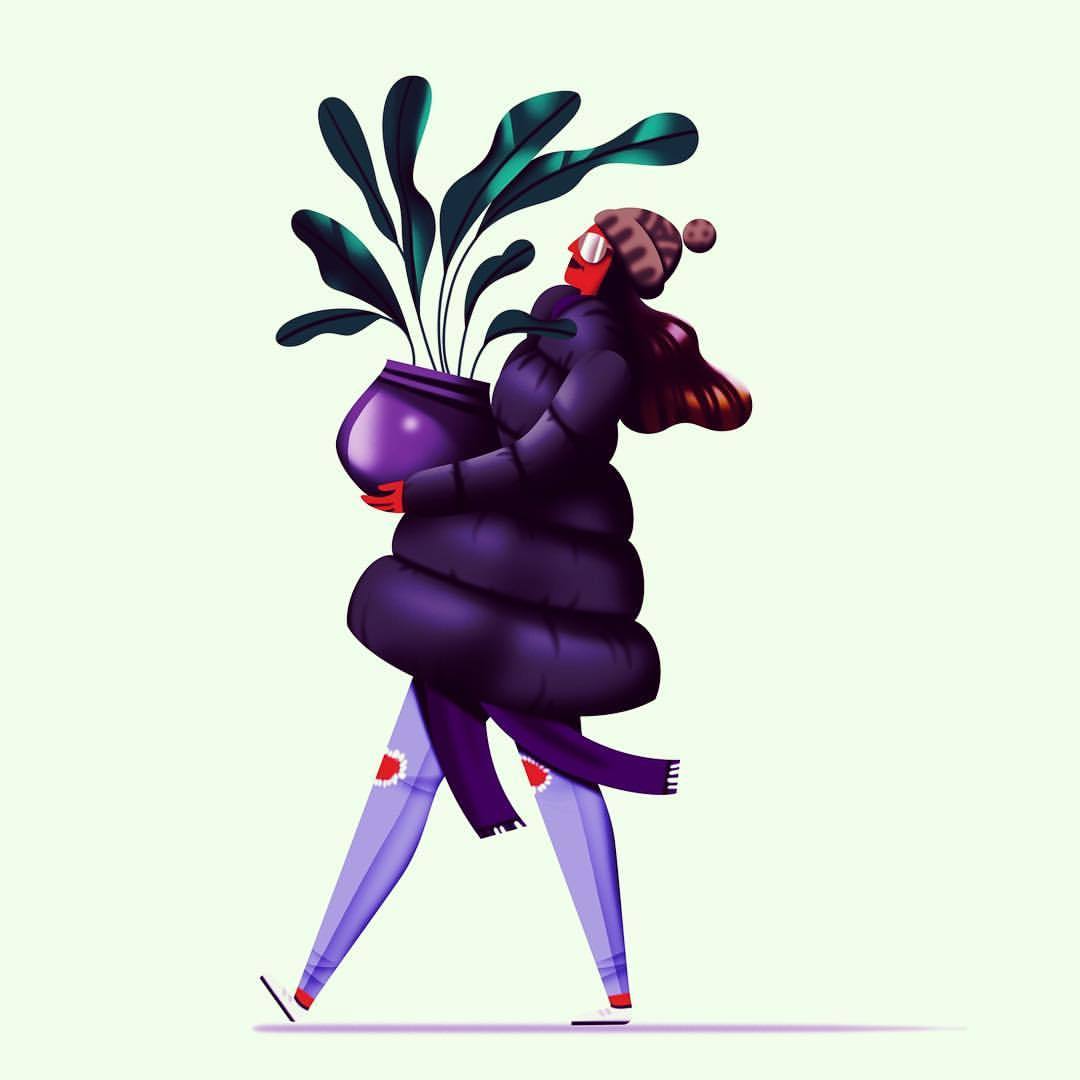
It feels like 2019 both snuck up on me and couldn't get here fast enough.
Not because 2018 was bad personally - not in the slightest. In fact, I'd say John and I both had banner years on pretty much all fronts.
We, like many of the people we know, are lucky.
But it was an exhausting year for lots of other people, both for people we know and, it seems, for the world at large.
There seemed to be way more bad news than good news, which I'm not even sure is true but when all the bad news feels like overwhelmingly bad news it's hard to not focus on the stuff that makes you want to sign off of the internet permanently and go live in a secluded log cabin on a mountain somewhere.
I get those feels, man.
But I'm trying to be more positive these days, so in light of that I thought I'd share some of the stuff I've been reflecting on in the wake of the final days of this The Year of Our Lord 2018.
Here's what I'm planning to work on in the coming year in no particular order:
I want to use social media with more intentionality.
I use social media pretty much all day every day because I run a digital marketing company
(shameless plug, heh)
but just because I use it and read about it all the time and think about it from a strategic perspective doesn't mean that I'm using it in a way that adds value to my personal life.
I plan to spend less time aimlessly scrolling through Instagram while I watch binge-watch something on Netflix, and more time painting or drawing while I binge-watch, listen to a podcast, or work through an audiobook.
I plan to spend less time RTing and Liking, and commenting instead.
Taking the time to answer those question boxes on Instagram stories and having small conversations with real people more often.
I plan on ReTweeting fewer white men.
Someone on the most recent Pod Save America episode pointed out that lots of influential journalists and politicians are white men, and that they were going to make a point to RT more diverse perspectives than those of the de-facto white guy in the room.
I liked that point, and am going to try and do the same.
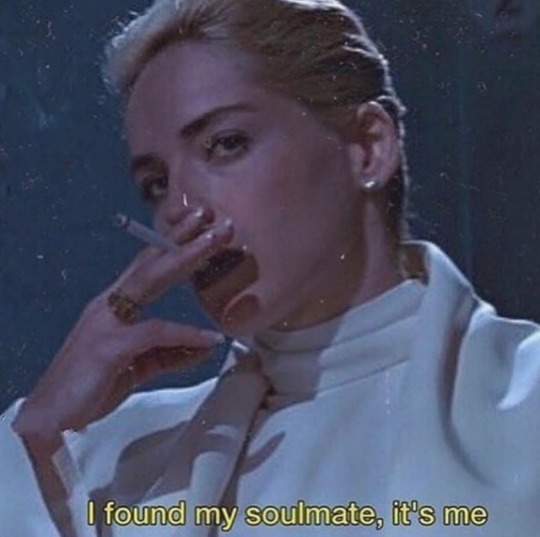
I want to read more books.
I read a lot of articles, but I don't read as many books as I'd like. This is problematic for me because, while reading lots of articles helps me construct a well-rounded model of an idea or concept, sinking down into a book offers me the chance to go much deeper on a subject than stringing together a bunch of articles tends to offer.
There's a great article about how reading books makes us more human that's informed my thinking a lot in this area.
I read a lot this past year, but I could have read more books if I'd put more effort into it. I got a bit lazy around summer, I think, since things were so busy.
I still managed to read quite a lot, though: I read and was devastated by Hemingway's A Farewell to Arms which I read while we were in Belize. I read Ubik and Little Brother and a bunch of Ted Chiang short stories and others through book club; I read Crossing the Chasm which took me way longer than I'd have liked and Fire and Fury which was infuriating and scary, and a couple of others, too.
I also just finished reading Adult Onset by Ann-Marie MacDonald, which was terrific.
Making time to read is hard even if you love reading though. Life gets in the way.
But I need to make more time for it because it helps me be a better
writer
person
version of myself.
So this year I'm planning to carve out more time for reading books, which bodes well since we'll have a lot of free time during our flights to Thailand, and I can read quickly af.
If you have any suggestions for books I should read, tweet them at me.
I want to forgive more readily.
The older I get the less I want to hang on to the angry things that kept me from happiness when I was younger.
I have a lot of things I can be angry about; plenty of things I can hold onto and wield like weapons. Things to keep me fired up, feeling angry, churning over thoughts and feelings.
And sometimes that happens, don't get me wrong.
But I want to put those things down more quickly in the years ahead.
Not just as it relates to my loony family, but as it relates to how I feel when I disagree with someone, or when I feel slighted or unheard or misunderstood.
I've realized in the past few years that being intentionally happy and focusing on the positive things on purpose has only made me more happy over time.
It also seems to have a positive impact on people around me, which is something I'd like to continue to foster.
There's a neat segment on the latest Hidden Brain podcast that talks about "contagious compassion" which relates to this concept that influenced how I think about this idea.
I plan on continuing to build on that because that seems like a good quality to cultivate in myself.
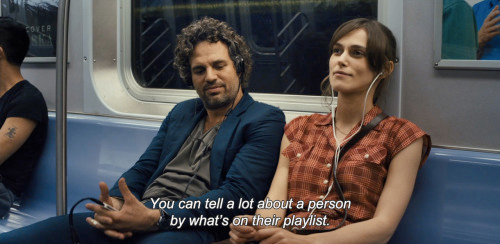
I want to spend more time with my food.
John and I already garden aggressively each summer, but finding new ways to cook, can, make jam, or otherwise do stuff with the food we buy and grow is something that gives me a sense of comfort and pride.
There's nothing quite like filling the house with the smell of simmering veggie scraps or chicken bones for broth
(except the smell of soup made at a later date)
or spending an afternoon listening to Frank Sinatra and the old classics while slicing up cucumbers for pickling, or tomatoes for a salsa.
Bonus points if there's a mojito or a well-garnished caesar nearby.
But there's more we can do to eat better, waste less, and be more creative with our leftovers and combining the odds and ends into our meals.
So this year I'm gonna figure out some "kitchen hacks" and become an even better, less wasteful cook.
I want to write more.
I've pigeonholed myself with my writing in the last few years, I think, and it's time to start exploring how to express myself using writing in other mediums.
I've downloaded Google Keep and am going to keep a list of notes, thoughts, phrases, and quotes collected as I go about my day. I've been using it over the past few days and it's been really rewarding to capture those little narrative moments as they happen.
Maybe I'll write a book with them someday. Who knows.
I'm planning to experiment more with writing poetry, and not judging my poems so damn much. Most poems suck, anyway, so it's absolutely fine for mine to suck as well.
I'm also planning to start hashing out some short stories. Making sense of some of the ideas I've had rattling around in my brain since I read Stephen King's On Writing a few summers ago and promptly got "too busy" to expand on them.
It feels like the right time, so I'm planning to capitalize on that feeling in the future.
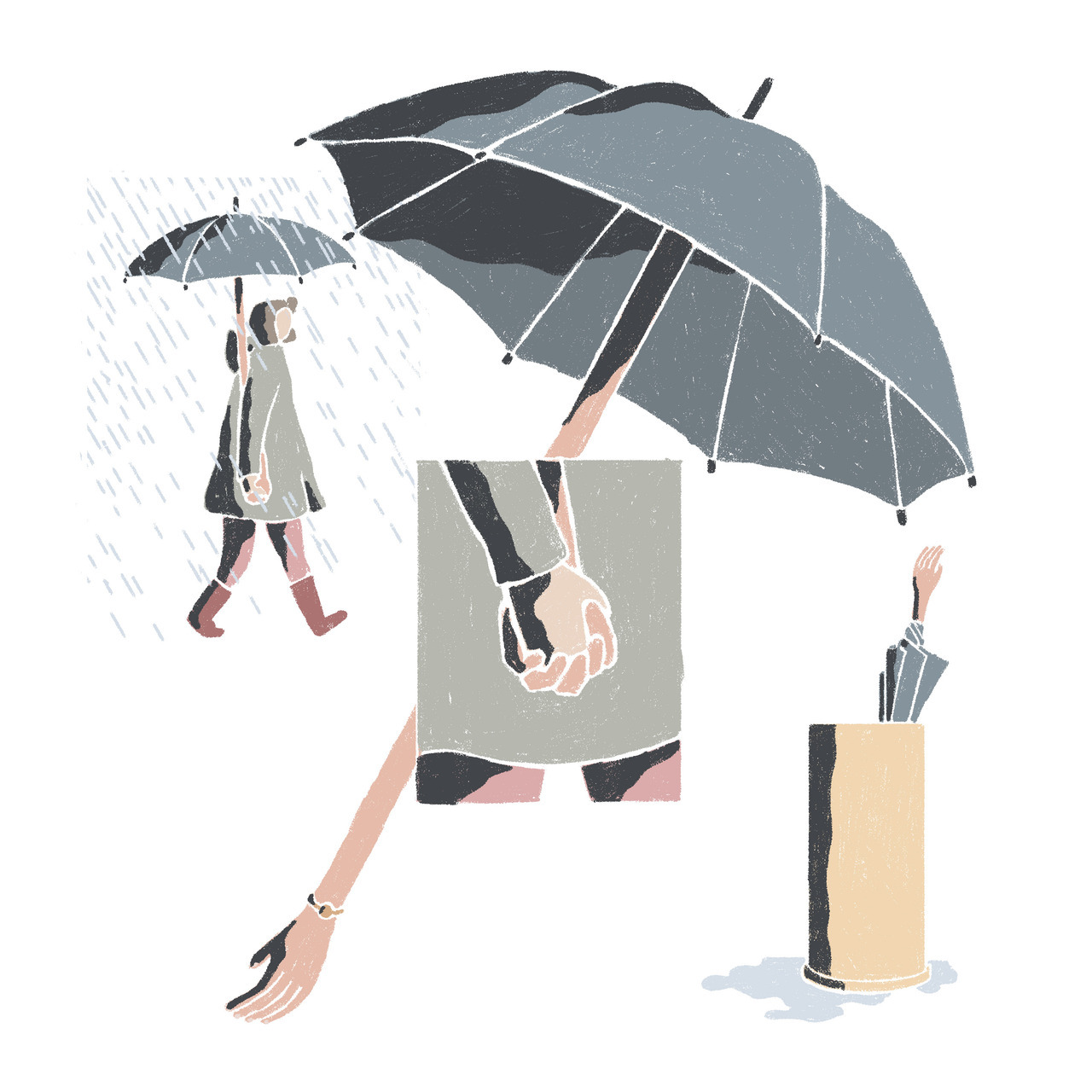
I want to do more crossword puzzles.
John and I do crossword puzzles on our phones together and it's become one of my favourite in-between activities that we do together. You know what I mean:
In-between prepping a meal and waiting for it to cook.
In-between getting ready for a ride and getting picked up.
In-between waking up and getting out of bed on the weekends.
It's a nice little mental stretch, and fun to do.
We use Redstone Games' free app Crossword Puzzle, and so far have liked the collections from D. Diebold the best, I think.
Happy 2019!
Whether 2018 was your best or worst year, I hope 2019 brings you the best of everything: friends, family, and personal and professional success.
It's always nice to have an opportunity to reflect and plan for the future; thanks for reading!
Do you have any plans for the coming year? Any ideas you're planning to work on, or goals you've set for yourself? Tweet 'em at me and let's chat.
We're going away soon and I can feel it
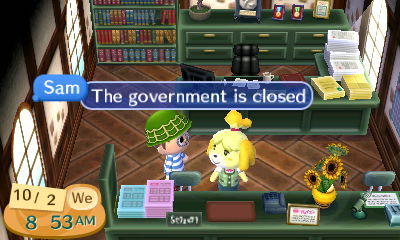
A lot of people tell me that they don't get nervous or excited before a trip until they're in the car or on the plane, but not me.
My favourite part of doing anything is thinking about doing it in advance of doing it.
We're going to Thailand and Cambodia in a few weeks and I've been daydreaming about beaches and big bowls of noodles and night markets and tuk-tuks for months, now.
But more than my excitement, I can feel that we're going away soon in how I feel about my day-to-day life.
I'm enjoying the small things a little more. Like how the winter sunlight looks in the afternoon, or how Toulouse curls up between my legs when I'm sleeping
even if this does trip me up almost every time I need to get up in the middle of the night.
Today we did our usual trio of errands: Shopper's, the LC, DeLuca's.
We put on backpacks and brought extra bags and laughed and tried liquor samples and bought a bunch of fancy cheese and artichoke hearts and fresh bread and a vanilla bean soda.
Tomorrow we're making a special dinner together and I'm going to make a nice mulled wine to serve with the pizza we're making from scratch and all the fancy cheese we're going to eat.
Tonight we're going to Thida's Thai with some friends and I'm ordering the super-spicy chicken pad Thai, my favourite
which I know is nothing like what I'm going to be eating in Thailand in a few weeks
and in a few days we'll be ringing in New Year's in our pyjamas with our best friends eating fancy cheese and drinking wine and popping bottles of bubbly to celebrate spending another year together.
The family I've built for myself in the city I love.
How sweet it is to be together
and how fleeting our time together is before we leave.
Are you a morning person?
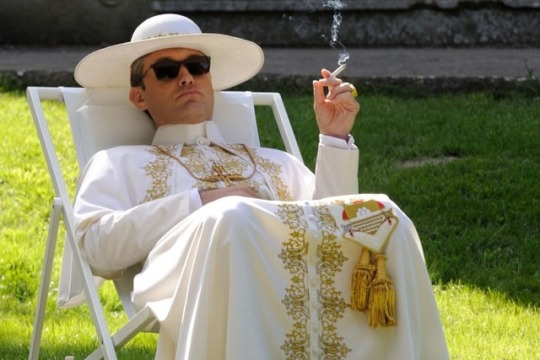
I didn't used to be. I feel like I'm developing an affinity for mornings as I get older though.
During the week we wake up at 7:30 AM but if I could manage waking up earlier and not be a giant grouch who hates her life I'd get up at like 6 AM or even 5 AM if I could.
I do my best work in the morning when my mind is clear and every time we travel or I find myself randomly up super early in the morning, even if I'm tired I still start my day feeling like
yeah, I got ahead of all that shit I had to do today.
I've been up for about an hour and have already snugged John and Toulouse in bed, fed the cats, took a photo of the street because I love quiet winter mornings
and made a cup of tea which is also something I've started doing as I've gotten older.
We really do become our parents in weird ways.
My mom is from England but she moved to Canada when she was 18, probably to get as far away from her mother as possible, which is also the reason I moved to Ontario when I was a the same age.
She's British in the ways you expect British people to be British:
she has a gap between her two front teeth, which I also have
she subscribes to a "know your place" and a "stiff upper lip" attitude when it comes to work and talking about your feelings
and she drinks tea like water.
My mom used to drink Tetley Orange Pekoe tea, and there was a whole area of the kitchen dedicated to the cups and plates and sugar containers and other paraphernalia needed to make it.
I don't remember if she took sugar and cream, but I do.
It seems like the older we get, the more we search for things that take us back to the feeling of safety we had when we were kids. Maybe that's why I drink so much tea these days.
It makes me feel safe and the smell has an old familiarity to it. Like a well-read book or an old leather jacket or a hug from your favourite uncle.
Tea was for the times in-between fighting. When my mom and I would watch Star Trek or some HGTV show together, or sit on the deck while she did crossword puzzles.
Sometimes I dream about her. I'm not sure if it's a memory, or just something I've dreamed enough times that it's real.
I'm sitting at the dining room table and my mom is looking out the kitchen window in our old house on Murray Avenue. It must be early morning because the air feels filled with light. She's wearing a long housecoat in a soft colour, and the kitchen smells like orange pekoe.
It's so vivid that it feels like I can reach out and touch it, but it's just a dream. A memory. Some whisper from a long time ago.
I think about her when I make the same tea during these early mornings by myself.
It's like a ritual; an homage to the parts of my mother that aren't stained by her words or behaviour.
I wish I could go back through time to that golden morning and talk to her. Ask her questions over the old, heavy dining room table over multiple cups of orange pekoe.
Who are you, Mom?
Why are you so angry all the time?
What are you so afraid of?
I've spent so much time asking myself those same questions, but I don't think I'll ever know what her answers are.
Most of the time it feels like the closest I can get is making myself a cup of tea in the early morning light
thinking about all the ways we're so different, and the small, quiet ways that we're the same
and how maybe that's enough.
People are all worked up about a Christmas song

And frankly I think we're worrying about the wrong thing.
What worries me isn't whether a song that was written 74 years ago is sexist
(it isn't)
what worries me is that our society is moving to a place where our first instinct to something we don't like is to ban it outright.
That's some Ray Bradbury-style shit right there, folks.
Last night I sat down and looked at the lyrics, and at first glance I could totally see why some people think the song is concerning: on the surface it sounds like guy trying to pressure a girl into staying the night, and that kind of behaviour, rightfully, deserves some scrutiny.
So let's dig into the historical context of the song a little bit:
"Baby, It's Cold Outside" was written in 1944 by the songwriter Frank Loesser (who also wrote Guys and Dolls) so he and his wife Lynne could perform it at parties. He sold it to MGM for use in the film Neptune's Daughter and it was a huge hit, winning an Academy Award in 1950.
It's a duet sung back and forth between male and female singers, and the plot, basically, is that a man is trying to get his date to spend the night and she's demurring.
By modern dating standards that seems, at first glance, problematic.
Obviously a man pressuring a woman to stay the night is inappropriate, right?
Except when we consider the song in the context of the time it was written:
In 1944, women were under a ton of pressure to appear modest. Being labelled as "a slut" could have serious social ramifications, so women were expected to put up a fight regardless of whether they wanted to engage in sexual activity or not.
Which is what seems to be what's going on when the female singer says:
"I ought to say no, no, no, sir, at least then I can say that I tried."
I could dig into this further, but there's a great Medium post that breaks down a lot of what I'd say anyway that I recommend you check out instead.
It's also worth noting that the expression "what's in my drink?" was a popular phrase people used when they were getting tipsy, as noted by Frank Loesser's daughter in an interview.
When the song was written the expression had nothing to do with date rape, or drugging someone's drink; the lyrics only become problematic when we view them through the narrow lens of the present.
But whether or not we agree on our interpretation of "Baby, It's Cold Outside" doesn't matter anymore, because banning it from the radio eliminates the opportunity for constructive discussion.
Worries About Censorship
Banning a song, or a book, or a film, isn't how societies solve problems; it's how we repress discussion and silence alternate viewpoints.
And, frankly, it scares me that this is where we're at as a society.
I've struggled to talk about this publicly, and have been afraid to do so because I'm scared of the political blowback I may receive.
I've watched people's lives get upended, their social standing destroyed, and their friends and colleagues turning their backs on them because they expressed an opinion that was unpopular, or that people didn't want to hear.
But the honest truth of it is that censorship doesn't help us, it hurts us.
I know this because I've studied it. I have a degree in rhetoric. I've studied oral history. I've spent close to a decade of my life dissecting how we convey our thoughts and ideas, and how our communication has changed over time.
I've taken a deep anthropological dive into how words can be weaponized against us
(which is the biggest reason why I find Conservative rhetoric scary and problematic, but that's a topic for another post)
and what scares me the most isn't what we say, it's when we stop people from saying it, and who does the censoring.
And because this censorship is coming from The Left it's easy for those of us who identify as left-leaning to hand-wave away how concerning these tactics are because we assume we have a moral high ground.
I mean, who wouldn't want to get behind ensuring that women are protected and respected in our society? That's an easy sell, right?
Except when we assume we have the moral high ground we stop looking critically at the larger implications of the actions we take.
When we demonize people who disagree with us as being "out of touch" or "dated" we hand-wave away the important discussions that need to take place in order to get everyone on the same page
(or, at the very least, reading the same book)
which is actually how we move forward together as a society.
What's Next?
Censorship is problematic because when we draw a line between "right" and "wrong" we leave no room for context and nuance.
We eliminate the opportunity for discussion and exploration because we've already decided (through censorship) that something has no place in our public discourse.
As our society continues to grow and change, we need to be able to have ongoing discussions about what is, and isn't, appropriate in our modern context, but censoring something we don't agree with isn't how we have healthy discussions.
The ugly truth of it is that censorship is a slippery slope to a totalitarian state, and I worry that because we've begun censoring things under the guise of "equality" and "feminism" we're ignoring the deeply troubling ramifications of adopting these kinds of tactics.
Because censorship seems OK as long as as you're not the one being censored.
But if history tells us anything, it tells us that the people we need to be the most concerned about are the ones who think the have the moral high ground
because it's those people who will turn on you the fastest.
What's your relationship with your parents like?
If you're like me, or even like a lot of other people out there, then you probably have a somewhat complicated relationship with your parents.
These conflicts and complications happen because dynamics are difficult to navigate; it's hard to be emotionally connected and love someone who may be vastly different from you, or who hurts you, confuses you, or struggles to connect with you emotionally.
As children, it falls on our shoulders to try to understand and unpack our parents:
What decisions and life experiences led them to this place in life?
How did these experiences shape their personalities and parenting style?
What can we do to bridge the gap between their values and beliefs, and those of a new generation?
(I think about these things a lot, in case you haven't noticed.)
Someone else who clearly thinks about these things a lot is Tetsuro Shigematsu, the performer behind the play Empire of the Son, which is currently playing at the Prairie Theatre Exchange.
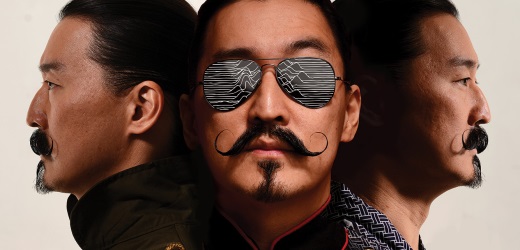
Image via the Prairie Theatre Exchange
Empire of the Son is a one-man show written and performed by Tetsuro Shigematsu (former host of CBC Radio One’s The Roundup) which employs a variety of mediums from monologues, to video, recorded audio, to live-action video using miniature sets, and more, to explore the complex relationship between himself and his father, also a CBC broadcaster.
Or, as the poster so aptly put it: Two Generations and the Silence Between Them (how perfect is this description, by the way?)
The play focuses on Shigematsu's emotionally distant father, Akira, and his struggle to reconcile his father's lasting impact through his work as a radio broadcaster for the BBC and CBC, and how emotionally distant and reserved he was with his family.
I'll be honest: I typically have a hard time getting into one-man shows as I tend to find the disconnect when an actor switches between characters to be rather jarring, but there was a distinct physical difference between when Shigematsu was "Tetsuro" and when he was acting as "Akira" that may have turned me into a one-man show convert:
Shigematsu's impressions of his father seemed to take over his whole body; his posture changed, his facial expressions changed, and his inflection and pronunciation were so dramatically different from the jovial person telling the story that it often felt like there was another person onstage, entirely.
At the same time, you could tell that these impressions, and his ability to deliver them so effectively, were crafted with the kind of love and intimate knowledge that only very close family members and friends tend to have with one another.
As Shigematsu led us through his father's life we came to understand the contradiction he felt about his father: for someone who broadcasted to the world and regularly talked to people across the globe, he struggled to open up to and connect emotionally with his own children.
It's revealed that though his father was an influential figure and led a storied life which included some astounding moments (having tea with the Queen, being present in the room when Marilyn Monroe serenaded JFK, and - most notably - being in Hiroshima when the atomic bomb was dropped) Shigematsu only began to 'real' conversations with his father when he began interviewing him towards the end of his life.
This contrast hit home, and served as a reminder that, often, the most we know of previous generations is what they choose to share, and unless we take the time to tease it out of them, their stories and experiences may be lost forever.
(As someone who studied oral history in university, I found this fascinating, by the way.)
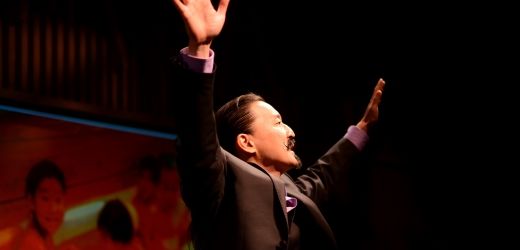
Image via the Prairie Theatre Exchange
This intimate solo performance was enhanced by Shigematsu's larger-than-life stage presence and his interesting use of a camera and miniature props located on a long table onstage. A DSLR camera (I think) was strapped to it, and at times Shigematsu would move casually over to the table, arrange some of the tiny props, and stream the live video camera footage to the screen behind him.
If this sounds strange, it was - but that only enhanced how effective this method of adding an additional visual layer was to the overall story. Personally, I've never seen someone manage to imitate two different people and move around on a miniature skateboard with just their middle ad index fingers, have you?
At the outset of the performance Shigematsu shares that he hasn't cried since he was a child, and shared his hope that performing this story in front of an audience would help him do so.
Personally, I shed enough tears for both Shigematsu and myself.
This poignant, captivating and strikingly funny memoir is one that I highly recommend seeing.
Additionally, we were lucky enough to catch Empire of the Son on the night of the Prairie Theatre Exchange's Leap Series, a new event in partnership with Manitoba Music focusing on out-of-the-box plays and music from local artists. If you're looking for a date night, or an opportunity to dive into the world of independent theatre, make sure to check out their next Leap Series event happening in February (and say hi to me if you do!)
**Big thanks to the folks at the Prairie Theatre Exchange for giving me free tickets to see their 2018/2019 season in exchange for these posts. It's a wonderful treat to be able to support and promote Winnipeg's independent theatres.**
I've been walking a lot recently
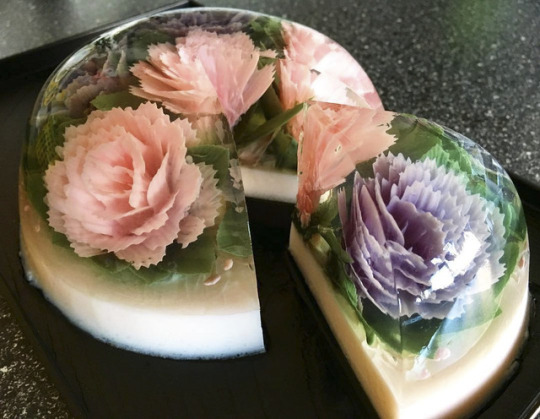
I walk a lot most of the time, really, but recently the temperature plummeted to something ridiculous like -20C for a few weeks and nobody wanted to go outside, myself included.
But the last few days have been way more mild, to the point where I didn't even wear a toque today. In late November!
But I digress: I've been walking a lot lately in a variety of headwear and a very sharp blue jacket courtesy of the recent Thrive Thrift Shop clothing swap
(I've finally fulfilled my lifelong dream of owning a winter jacket that isn't black!)
to and from different meetings, and appointments, and what have you.
It's been nice to be outside again.
The part I like most about being outside is having the opportunity to see other people going about their day. I'm endlessly fascinated by other people and can sit in one spot watching people all day long if left to my own devices.
A lot of people think people-watching is boring, but it isn't. People are incredibly interesting if you think about it.
Consider this: every single other person around you is walking around in a big skin bag with internal thoughts and feelings, worries and motivations, deep personal histories, baggage, anxieties, hopes and fears... all of the weird stuff you go through every day, everyone else is going through at the same time.
Do you remember the first time you realized that about other people? I do.
I was in the bathroom in my childhood home, washing my hands. Or rather, I'd washed my hands after using the bathroom and was thinking about something, and as I looked at myself in the mirror I realized:
every single other living person out there is having the same experience as I am.
I actually stumbled back a bit and had to catch myself on the towel rack, and stared at myself and for the first time connected with the fact that all of the other people around me were as equally complicated and had the same internal monologues and experiences, and it scared the living daylights out of me.
I'd never felt so small before. I felt insignificant because, after all, if what I'm experiencing is just "default human" and is the same thing everyone else experiences, does that mean I'm less unique?
After that I developed an obsession with psychology and sociology and anthropology.
I figured: I dive as deep into these topics as I can, maybe I can figure myself out.
But what digging into it (and, subsequently, into how totally infinitesimally small and unimportant I am in the grand scheme of the universe - deep breath) wound up accomplishing was that I developed a strange fascination with other people.
(The jury is still out on whether I truly understand myself though - I'm a work in progress)
I want to know everyone's backstory. Their hopes. Their fears. What it's like for them for look out of their eyes from their body and look at me knowing that there's a consciousness in there looking back at them from a separate sack of skin and bone and muscle and gut bacteria and atoms and neurons firing.
I wonder: what's it like for them to know that there's another person in me, too?
So it's nice when it's warm enough for me to walk outside because I get to experience other humans going about their days, absorbed in their own and thoughts and feelings.
They're going about their lives, thinking their own internal monologues.
Worrying about what to make for dinner
what to get Jenny for her birthday next Thursday
that wall in the kitchen they still haven't painted yet.
I walk by other people and I marvel at how unique everyone is.
How strikingly complex and interesting and special they all are.
And I walk to and fro and back and worth watching people, and I wonder:
Does anyone else realize this about me, too?
